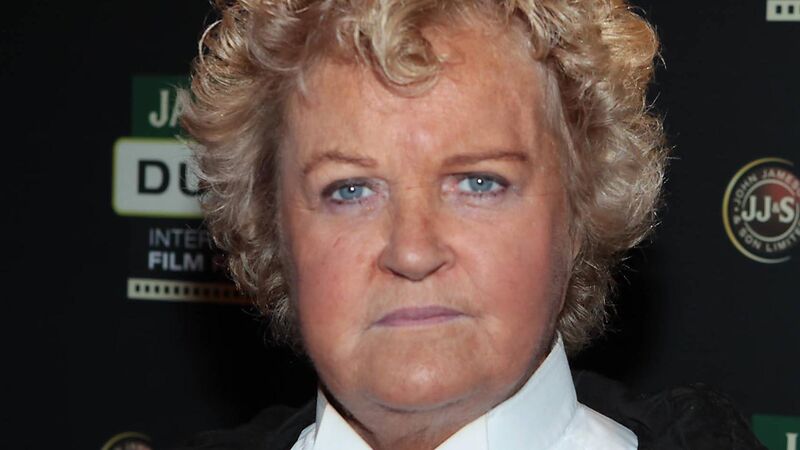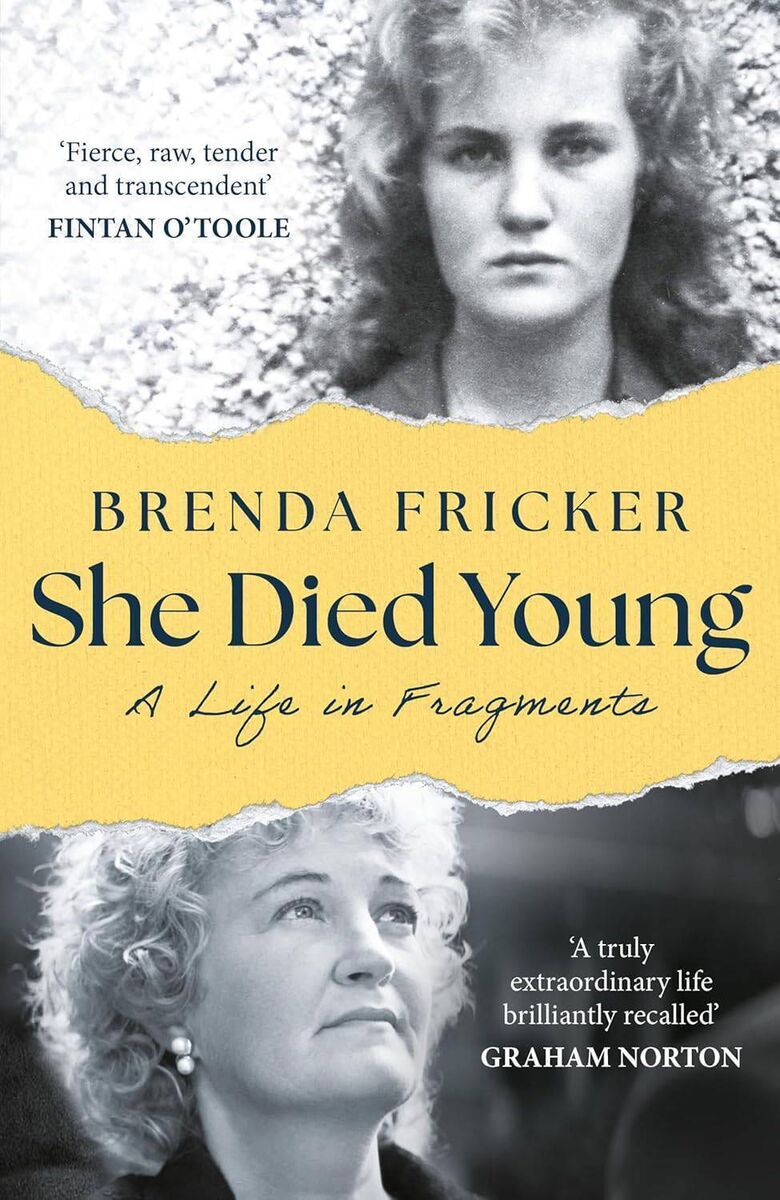Book review: A raw, harrowing personal account of Ireland’s true Oscar-winning artist

Brenda Fricker recalls her story with poise, with an overarchingly sombre tone lifted by lighter moments. File picture: Brian McEvoy
- She Died Young: A Life in Fragments
- Brenda Fricker
- Head of Zeus, €25
Actors’ autobiographies often read like extended press releases, speedily constructed by collaborators who are kept as much at arm’s length as the audiences.
Sometimes these books are artistically ambitious and written by the performers themselves.
Anjelica Huston’s memoirs spring to mind as an example of the genre done right, and now Brenda Fricker’s joins the elite of celebrity offerings very much worth your time.
Fricker and Huston were among the nominees for the Best Supporting Actress Oscar in 1990 — Fricker, considered the outsider, triumphed for her role as Christy Brown’s mother in .
That night cemented the Dubliner’s status as a national treasure and, now 80 years old, she remains the only Irish woman to have won in an acting category at the Academy Awards.
From the first page, Fricker invites us into her kaleidoscopic world: “Sometimes I falter,” she writes, and a few lines later, she addresses us directly: “Do you falter?”
The book has no shortage of illustrious cameos — Fricker rides home from school in Mary Lavin’s convertible, buys a drink for Flann O’Brien during her stint as a young journalist, unknowingly mingles with a Nobel Prize winner outside a London pub, and rubs shoulders with Hollywood luminaries as her movie career takes off.
She becomes an actor almost by accident, and is initially nonchalant about her auditions, telling a friend: “I’ll go if I can find a parking space outside the Gresham.”
This is no glitzy showbiz diary, however, but rather a raw, often harrowing account of a life characterised as much by violence and tragedy as talent and success.
Her middle-class upbringing may have afforded Fricker early opportunities, but the family dynamic was turbulent.
Alongside tender moments, her father is presented as distant and enabling, her mother as physically abusive: “One of the worst things about her rage was its unpredictability.”
A childhood fascination with blood, startlingly recounted, foreshadows heartbreaking attempts to take her own life.

Fricker writes candidly, but also stylishly and eloquently about her struggles — a stream-of-consciousness chapter, simply entitled Mad, is a stand-out: “age weakens lots of things but not the dark old age is cute with pain and even smarter with the dark.”
Although overarchingly sombre, the memoir is not without its lighter moments and has the potential to ruffle a few feathers — Fricker reckons “method actors are not team players”.
As well as a deadpan wit, she possesses an ability to see beauty in the everyday — an early memory of a farrier in the Kerry countryside is treated with as much reverence as any VIP experience.
In the village of Gneevgullia, Fricker morphs from “a troubled urban kid into a happy rural child” and even Hollywood hunks struggle to outshine the charming farmers encountered during those blissful trips to visit her beloved aunt Nonee: “I remember them all as young gods.”
Events from her childhood are conveyed with striking finesse and the fragmentary style suggested by the title is truer of its final act — Fricker’s marriage is probed less than her youth, her divorce detailed in the abstract.
Glimpses are suggested of the icon’s post-Oscar life, and the reader is not left wanting, but the work’s structure did make me wonder if she’ll take a leaf from Huston’s book and gift us with further memoir instalments.
Does the lifestyle of a reclusive actor present the perfect conditions for her author era? Fricker certainly writes like an accomplished one with more untapped material in her repertoire.
Either way, showcases what the Irish public have known for a long time — Brenda Fricker is a true artist.
BOOKS & MORE
Check out our Books Hub where you will find the latest news, reviews, features, opinions and analysis on all things books from the Irish Examiner's team of specialist writers, columnists and contributors.


